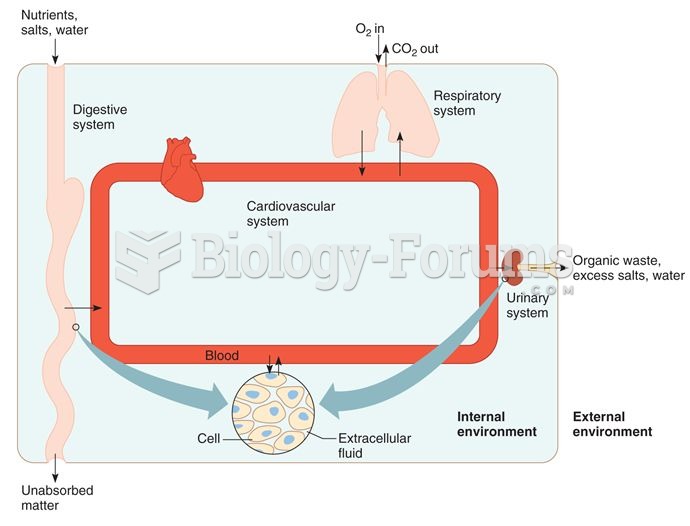|
|
|
The average older adult in the United States takes five prescription drugs per day. Half of these drugs contain a sedative. Alcohol should therefore be avoided by most senior citizens because of the dangerous interactions between alcohol and sedatives.
The most common treatment options for addiction include psychotherapy, support groups, and individual counseling.
Vaccines cause herd immunity. If the majority of people in a community have been vaccinated against a disease, an unvaccinated person is less likely to get the disease since others are less likely to become sick from it and spread the disease.
Egg cells are about the size of a grain of sand. They are formed inside of a female's ovaries before she is even born.
There are approximately 3 million unintended pregnancies in the United States each year.
 The form and orientation of desert plants reduces heat gain from the environment and facilitates coo
The form and orientation of desert plants reduces heat gain from the environment and facilitates coo
 An electrocardiogram (EKG) wave, a record of the electrical signal as it moves through the conductio
An electrocardiogram (EKG) wave, a record of the electrical signal as it moves through the conductio





